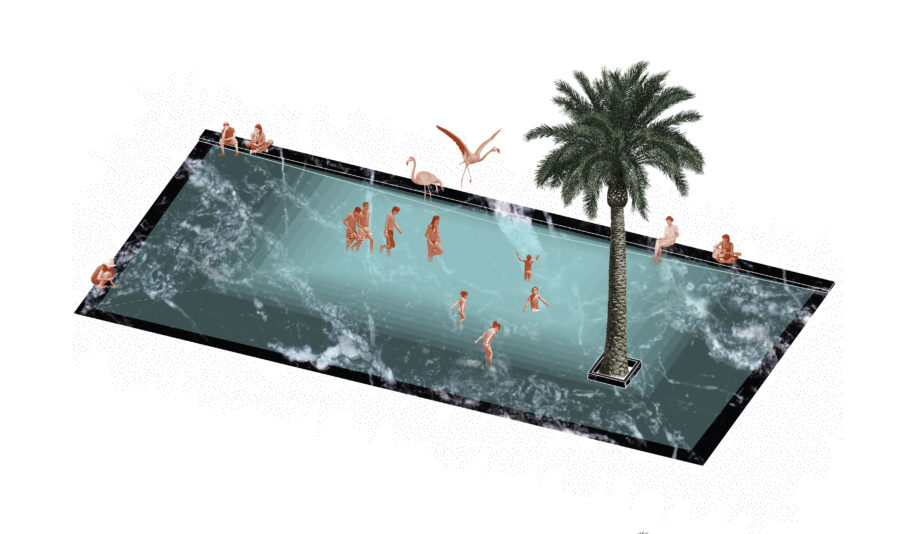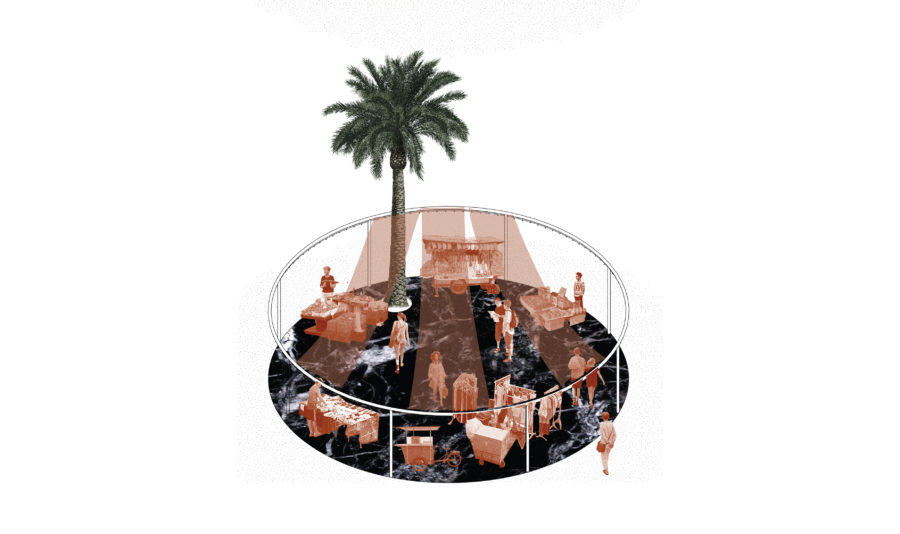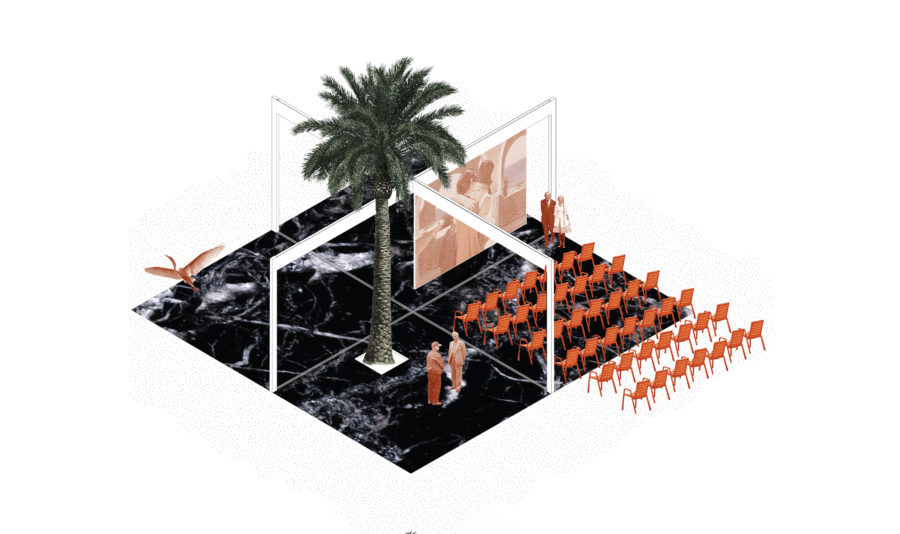Urban Oasis
1st Prize, Ideas Competition for the reconstruction of Charitou Sq. in Rhodes, Greece
The economic crisis of recent years downplayed the role of public spaces, cutting off city life from the natural environment. This proposal aims to restore this balance, turning Haritos Square into a green lung, exploring the potential of natural environments in urban spaces, as places of cultural production and cultivation of the individual. The new Haritos Square is transformed into an urban Oasis, a secret forest, that balances the crowded beaches of the city of Rhodes, connecting the two sides of the peninsula and promoting the urban development inwards, from the beach to the city. A place for rejuvenation, meditation, discussion and exchange, that promotes individual and collective responsibility and cultivation of one’s self and of one’s community.
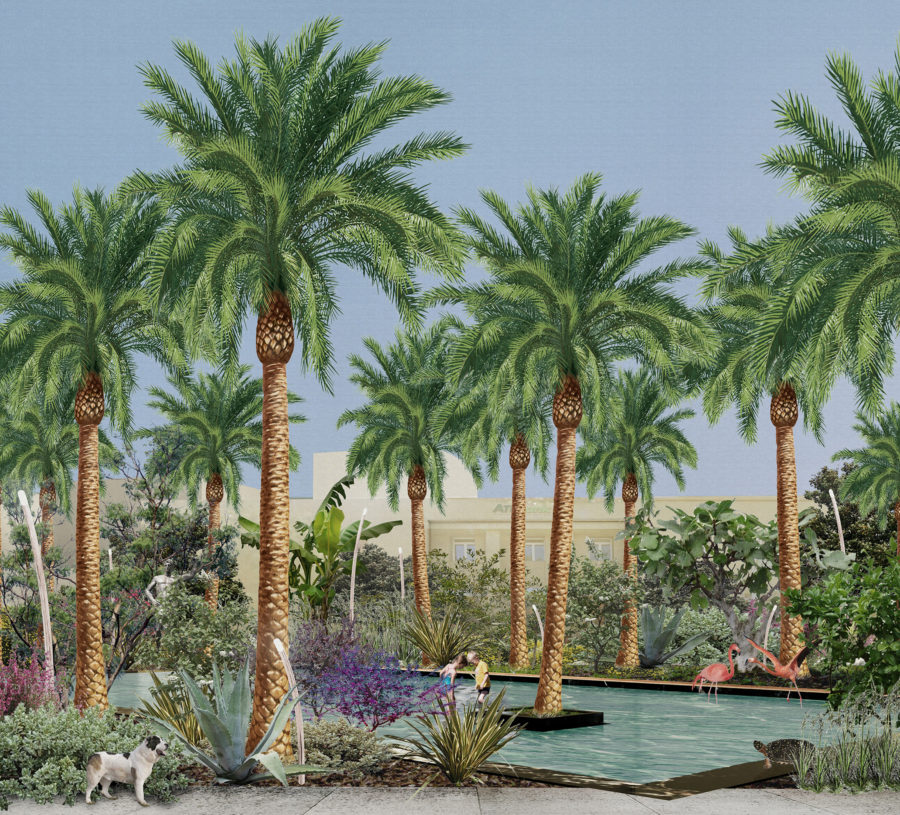
One of the intentions of the competition was to create a square for culture. What form can a space of culture take in the city in order to be accessible to all, regardless of economic and social status? Can it be a space that encourages the redefinition of our relationship with the natural environment and society at large?
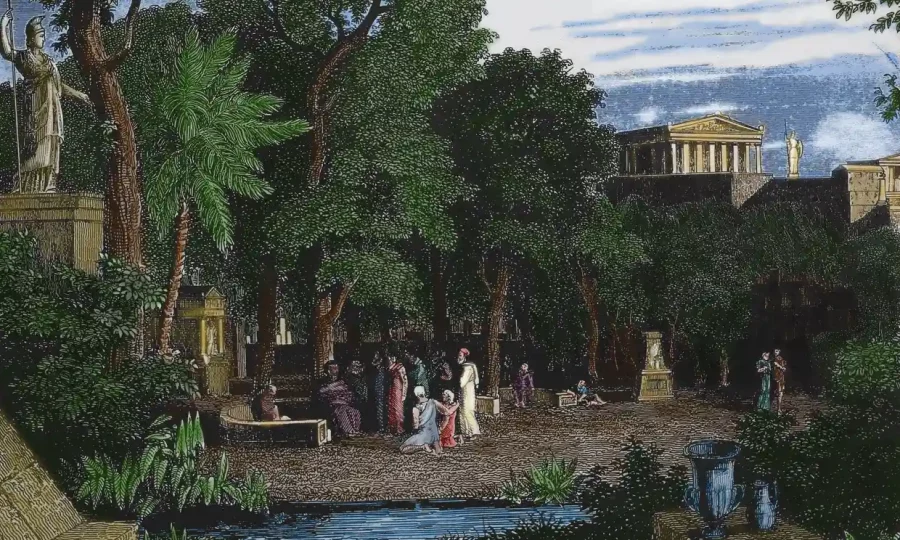
Inspired by the Epicurean philosophy, we revisited the idea of the garden, as a place of cultivation not only of the soil but also of one’s self. At the centre of the Epicurean philosophy is the garden, the perfect garden, a democratic space that provides food for thought and reasoning. Basic principles of this garden are composure and delight. Aristotle used to teach his students in nature (Peripatetic school), walking in the galleries of the Lyceum on the Ilissos river. Conversation, philosophy, friendship, cheerfulness, peace of mind, virtues that require the daily cultivation of oneself and one’s community, not based on consumption, but cultivation, not passive satisfaction, but active responsibility. The proposal recognizes the possibility of nature to contribute to the production of culture and proposes the introduction of the natural element as a basic synthetic principle, implying that the cultivation of public space can lead to the cultivation of the individual.
“Urban Oasis” creates a new spatial hierarchy by reversing the relationship of hard and soft surfaces. Thus, a large soft surface is proposed, a dense green volume, interrupted by three squares like clearings in the forest.
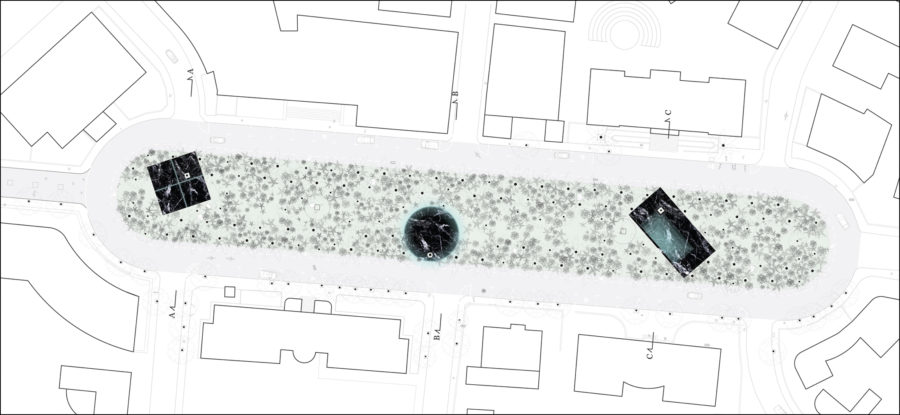
The squares function as spatial installations, glades in the dense Oasis, while all three intersect with its perimeter. The three surfaces of raw black marble interrupt the green volume when in contact with the perimeter and are revealed to the passer-by. One can wander around them or stay and enjoy them. Each is designed for different purposes and in relation to the surrounding areas. They all present water in different forms reminiscent of the islands’ climates and landscapes, while their simple geometry encourages freedom of expression and appropriation.
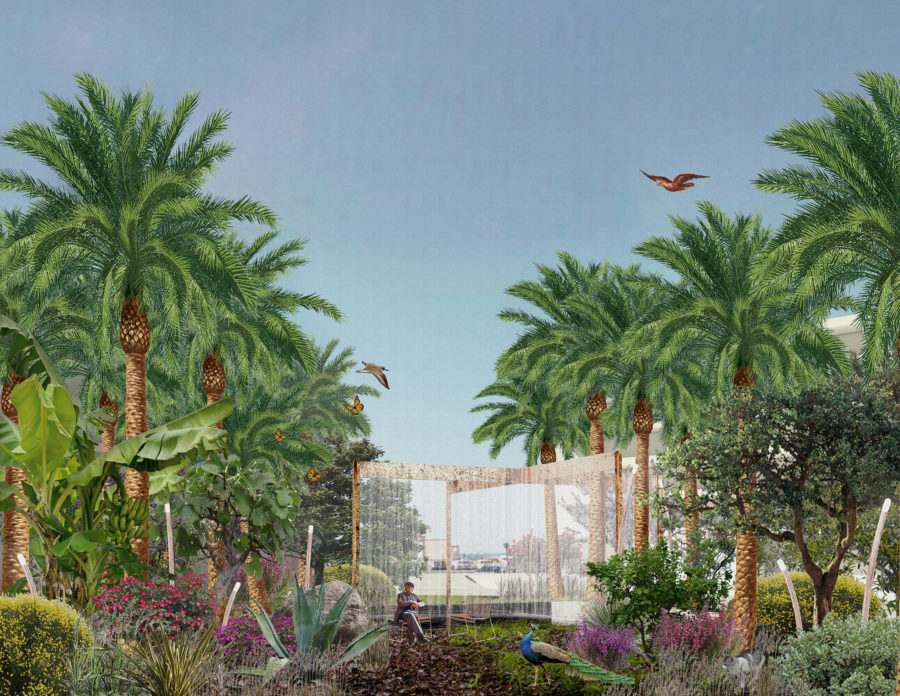
What if “Oasis”, gardens, forests, nature as common good, become integral elements of the urban landscape, manifestations of a democratic space that all residents have the opportunity to visit and enjoy? Places of collective and individual cultivation, places of meeting and socializing that transform cities to Ecosystems of multispecies coexistence.
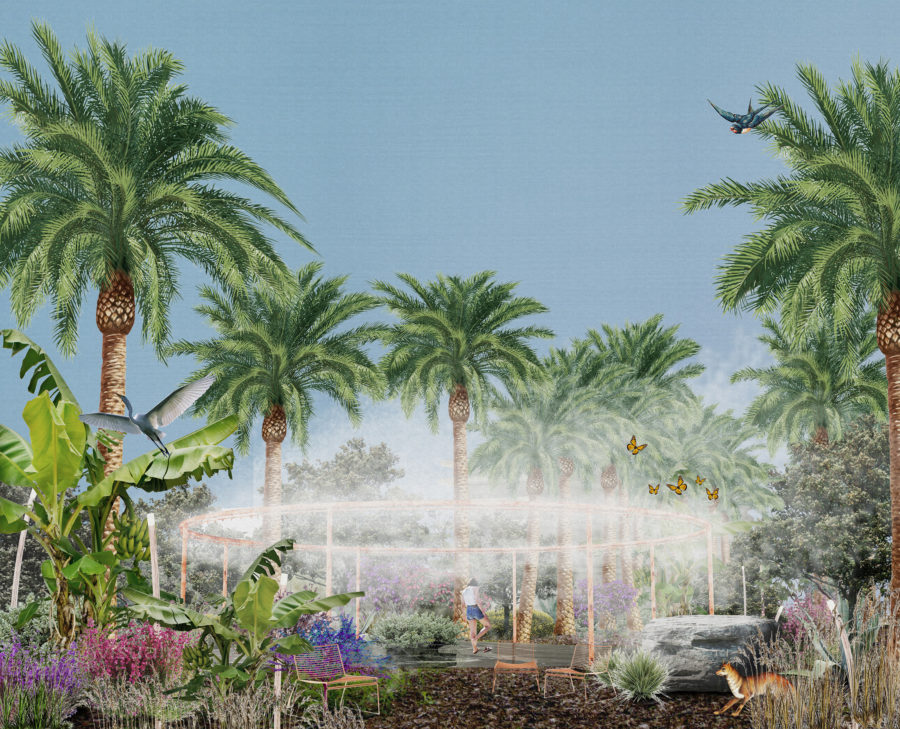
“I will never be able to cultivate a person or part of a person as one would cultivate an acre of land.”
Wandering
Nature and Walking, Henry David Thoreau

